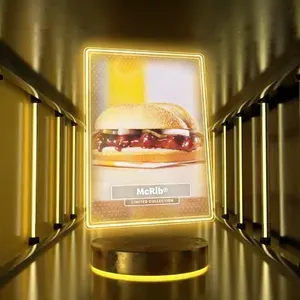A collection of NFTs seeks to profit off the murder of George Floyd, with no apparent connection to or approval from his family
Someone released a collection of poorly-made pixel art NFTs depicting the late George Floyd, whose murder by a police officer in May 2020 set off protests around the world. There was no apparent link to his family or any social justice charity; this was just a scam to make money off of the memory of a murder victim. One entry in the collection depicted Floyd as a police officer; another styled him as a Despicable Me minion. "To the people who think I'm super-racist, I would say I'm just an opportunist", said the creator.
Vulcan Forged users lose a collective $135 million in hack
Stolen private keys from the blockchain gaming platform Vulcan Forged enabled attackers to siphon funds out of just shy of 100 user wallets. Rather than users managing their own private keys, this is done by the platform, suggesting the issue was not user error. The project says it plans to reimburse users.
The Seattle Kraken NHL team, whose home stadium is named the Climate Pledge Arena, raise eyebrows with an NFT release
The Seattle Kraken announced that they would be releasing a set of NFTs. Although several sports groups have released NFTs, people were particularly surprised to see it coming from a team that is known for its environmental advocacy. Though the NFT release will be on a proof-of-stake blockchain that claims to be net-zero emissions (Avalanche), many were up in arms about the team engaging in something that they see as antithetical to environmentalism.
Typing error costs NFT trader nearly $300,000
An NFT trader made a typing error when entering a listing price, accidentally listing his Bored Ape NFT for 0.75 ETH (about $3,000) instead of 75 ETH (about $300,000). The NFT was instantly bought by a bot account. The BBC writes, "In traditional banking transactions, such errors are usually reversed easily if the bank facilitating them is told about the mistake quickly. But in the unregulated crypto-trading market, there is usually no way to reverse such a sale."
Fable creator Peter Molyneux announces an NFT game where you run a company town
Peter Molyneux announced a new game, Legacy, a business management simulator (fun!) where you join by buying an NFT called "Land", and compete to increase your "LegacyCoin" bank account balance. The company in the game effectively is running a company town, a real-world model with a history that is far more fraught than Molyneux acknowledges in his Verge interview.
Cryptocurrency exchange Ascendex hacked for $77 million
Ascendex lost $77 million in a hack targeting hot wallets. The platform said it would reimburse customers for all of their lost funds.
McDonalds NFT project overshadowed by a possible link to a racial slur
McDonalds tried to make a splash with a McRib-themed NFT project, but that was quickly outshined by the discovery that an early transaction to the Ethereum address associated with the collection contained a racial slur.
Crowdfunding website Kickstarter announces it will abandon its current platform in favor of a blockchain implementation
Kickstarter announced they have decided to create a decentralized version of their platform, and to create it on the Celo blockchain. This was not entirely well-received, and some major users strongly opposed the idea. Per Gizmodo, "How this will actually work, beyond Kickstarter being able to yell 'blockchain' like a spell to summon investors or maybe getting a cut of every project that runs on the resulting protocol, is unclear."
A "decentralized exchange", dYdX, is taken down in an AWS outage
During a widespread AWS outage, supposedly-decentralized DeFi platform dYdX went down. dYdX is an Ethereum exchange that touts itself as the "world's leading decentralized exchange", and indeed it is estimated to be the fourth largest exchange. Whether it's decentralized or not, however, is much more in question following the outage. Other major platforms (that are more known to run on centralized infrastructure) such as Binance and Coinbase were also affected by the AWS blip.
Ubisoft announces it will be shoehorning NFTs into its Tom Clancy game
Ubisoft announced that it would be adding NFTs to its Tom Clancy's Ghost Recon Breakpoint title, allowing players to buy "Digits": artificially scarce in-game weapons, vehicles, and cosmetics. The announcement video on YouTube sported a 96% dislike ratio shortly after, with the top comment accusing Ubisoft of "milking the Ghost Recon franchise for literally every cent while putting in minimal effort into the actual game itself". Many Ubisoft developers were also caught off guard: some were worried they would be forced to include NFTs in other game titles they were working on, while others raised environmental concerns that come with Ethereum NFTs. The project had a very underwhelming reception — two weeks after its launch, they had sold only fifteen of the more than 2,000 NFTs, for a total of around $400.
- "Ubisoft's NFT Announcement Has Been Intensely Disliked", Kotaku
- "Gamer-hate: Ubisoft’s new NFT project video gets 96% dislike ratio", Cointelegraph
- "Ubisoft's first NFT plans make no sense", Ars Technica
- "Ubisoft Devs Don’t Understand Company’s NFT Push, Either", Kotaku
- "No One’s Buying Ubisoft’s Garbage Ghost Recon NFTs", Kotaku









